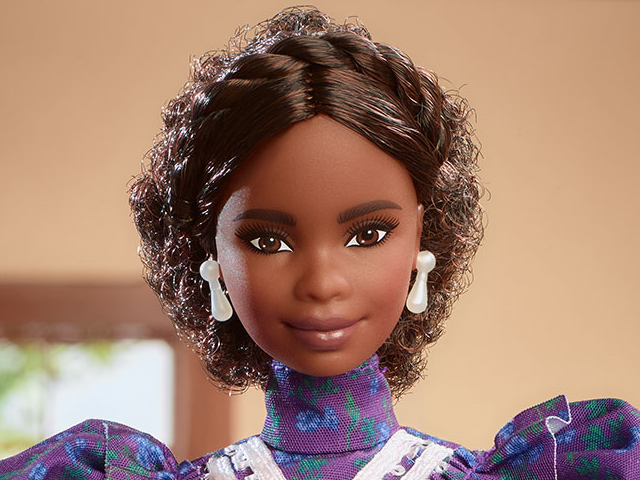A doll from the Barbie collection shines the spotlight on Madam C.J. Walker, the first documented self-made female millionaire.
“As a pioneer in entrepreneurship, philanthropy and activism, creating the blueprint for the self-made American businesswoman and innovators of the twentieth century, Madam C.J. Walker is an embodiment of our Barbie Inspiring Women series,” said Lisa McKnight, executive vice president and global head of Barbie and dolls for Mattel, the Indianapolis Star reported Saturday.
In the product details, Mattel said Walker was born Sarah Breedlove in 1867 on a Louisiana cotton plantation.
“The daughter of parents who were formerly enslaved and became sharecroppers, Walker would become a successful entrepreneur and the nation’s first documented self-made female millionaire,” the company noted.
In a social media post on Wednesday, Barbie shared photos of the doll wearing a turquoise skirt, puffed sleeve blouse, and pearl earrings:
#Barbie is proud to introduce Madam CJ Walker as the newest doll in the Inspiring Women line. With unflinching determination, Madam Walker was the nation’s first self-made female millionaire, creating a business that pioneered modern Black haircare. https://t.co/TlcCeZew7L pic.twitter.com/zUtHWCsrAK
— Barbie (@Barbie) August 24, 2022
Walker built her fortune with homemade haircare products for black women. She was inspired by her own experiences with hair loss.
Thus, the “Walker system” of hair care was born, according to History.com:
A talented entrepreneur with a knack for self-promotion, Walker built a business empire, at first selling products directly to Black women, then employing “beauty culturalists” to hand-sell her wares. The self-made millionaire used her fortune to fund scholarships for women at the Tuskegee Institute and donated large parts of her wealth to the NAACP, the Black YMCA and other charities.
The Mattel website also featured dolls highlighting historical figures including Ida B. Wells, Ella Fitzgerald, and Susan B. Anthony.
The Walker doll, priced at $35.00, came with a “Madam C.J. Walker’s Wonderful Hair Grower” accessory.
“When Madam Walker started her company in 1906 there were very few women who were in business. She and Helena Rubenstein and Elizabeth Arden were women who were all in the same boat,” biographer A’Lelia Bundles said in 2013:
“They were trying to develop an industry. People didn’t even take them seriously. She traveled door to door, town to town, teaching individuals in churches and in people’s parlors and wherever she could,” Bundles added.
“She could see ultimately it really wasn’t as much about the hair care product, though that was important in an era when women didn’t have access to those products. But it also was very much about empowering women and about helping women become economically independent,” she concluded.

COMMENTS
Please let us know if you're having issues with commenting.